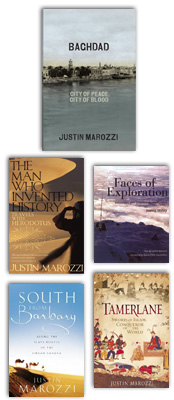Strange things happen in Mogadishu airport. Day 1 and a British national suspected of al-Qaeda ties is detained. Porn, suspicioussubstances and traditional Arab dress in his luggage. I hotfoot it down to the police station to discover a black man in white Lonsdale vest and blue tracksuit trousers. Only a British Islamist would dress so badly. He says his legal and human rights have been so badly abused in the UK that he has come to Mogadishu to look for a decent lawyer.Then he trots out a story about making his way down the East African coast,starting somewhere “peaceful and sunny”. In fact, he was haplessly trying to get to the port of Kismayo, headquarters of al-Shebab, the local insurgentsallied with al-Qaeda, “to help the Muslims”, as he later tells the cameras.
He appears not to have done his homework. First, 99 per cent of Somalis don’t like al-Shebab. In its latest report on Somalia, Human Rights Watch notes the group’s fondness for “floggings, summary executions and public beheadings”. Second, the authorities, who are currently waging war rather successfully against them with the robust support of African Union forces (Amisom), are hardly likely to wave him through to their enemy. He is quickly deported back to the UK — with an enforced stopover at the British Embassy in Nairobi.
Apart from wannabe Islamists, the airport has recently entertained other exotic creatures: the pair of lion cubs that a local smuggler tried to fly out of Somalia, only to be frustrated by an alert sniffer dog.Then there was a British team of hostage negotiators who arrived in two planes carrying $3.6 million cash for a captured Chinese ship. “They like to use a slower propeller plane from Mogadishu so they can drop the money on the deck,” says my local kidnap and ransom expert. Somali immigration arrested the Brits and relieved them of their dollars.
And don’t forget the two daily flights from Kenya bursting with sacks of qat, the mildly hallucinogenic stimulant that Somalis chew by the ton.
Traffic signal
The last time I was here, a year ago, you wouldn’t dream of travelling across town unless you could hitch a ride in an Amisom Casspir armoured personnel carrier. It’s a sign of the times that these days you can hop into a car and hightail it to Villa Somalia, the presidential compound on a bluff overlooking the city, without so much as a second thought, bar the occasional IED. In the absence of al-Shebab, who were ousted last summer, new markets, street cafés and exuberantly decorated shops have sprung up and are doing a brisk trade. There are even traffic jams, a sure sign ofprogress.
On the journey from the new front line, three miles outside the capital, we pass scenes of utter destruction, misery and human squalor — it’s heartbreaking to compare them with 1950s photos of elegant, tree-lined boulevards, graceful fountains and broad-fronted palaces. Peace and an internationally recognised government have come to Mogadishu for the first time in 20 years. Can the politicians now step up to the plate and extend it nationwide?
Captain Mole
Trying to find out, I have an appointment with Abdiweli Mohamed Ali, the Prime Minister. Mild-mannered, bespectacled and barefooted, the gentleman sitting in front of his laptop is more Mole of Wind in the Willows than Mogadishu warlord. A lot is riding on the shoulders of this Somali-American technocrat, economics professor and tax expert, ex-Harvard,Vanderbilt, World Bank and UN, who is steering Somalia through the Scylla and Charybdis of the final four months of transitional government to a new constitution and elections in August.
Parliament will be cut from 550 to 225 MPs, a sensible trimming of one of the world’s more venal assemblies. Every year since 2007, Transparency International has rated Somalia the most corrupt country in the world. Yet as Peter De Clercq, of the UN’s political mission, argues: “It’s more important than ever for the Somali leaders to be seen as credible and transparent.”
The PM sighs. Good governance and the fight against corruption are priorities. “This is a very difficult and thankless job. Sometimes it gets me down. But it’s rewarding. It’s a duty call, our generational responsibility to make Somalia better for our children and great-grandchildren. If I don’t do it, who will?”
Justin Marozzi is a senior adviser at Albany Associates and the author of The Man Who Invented History: Travels with Herodotus

